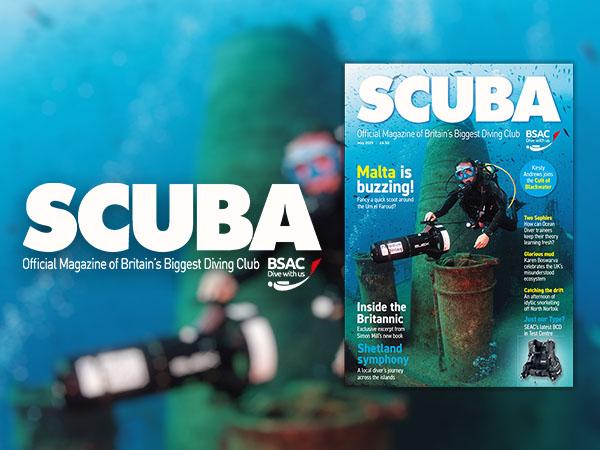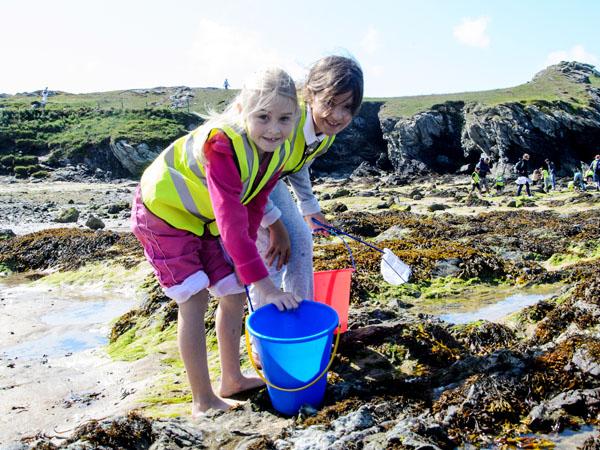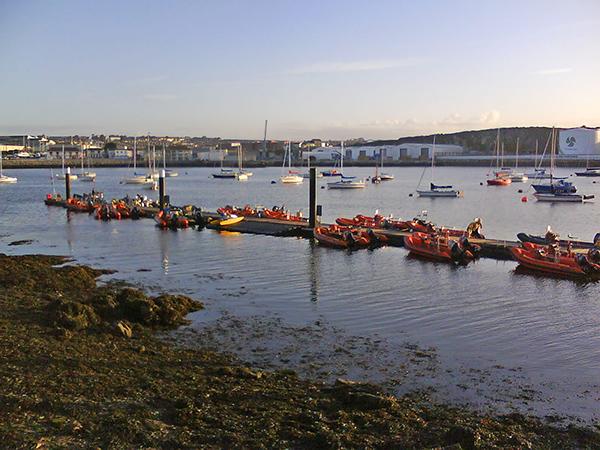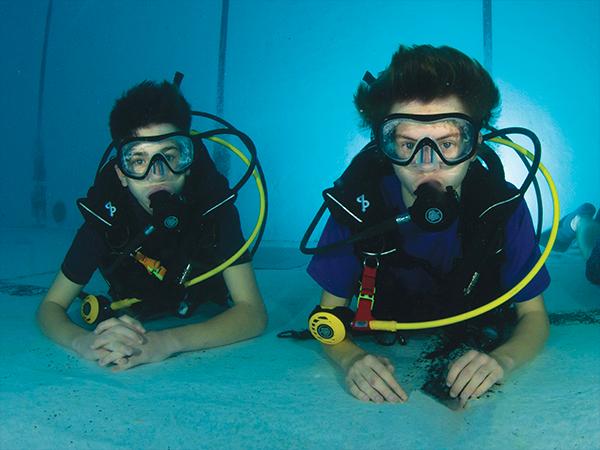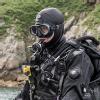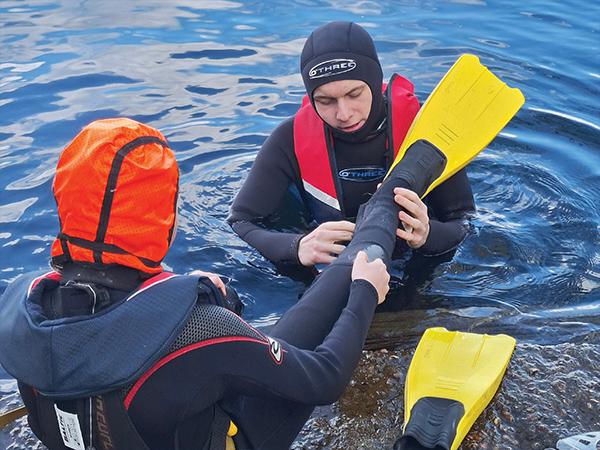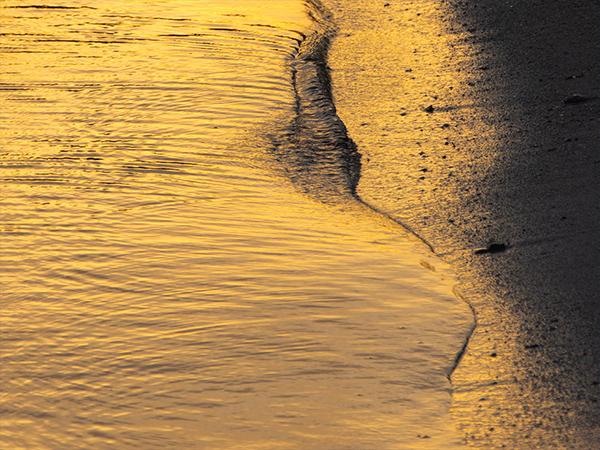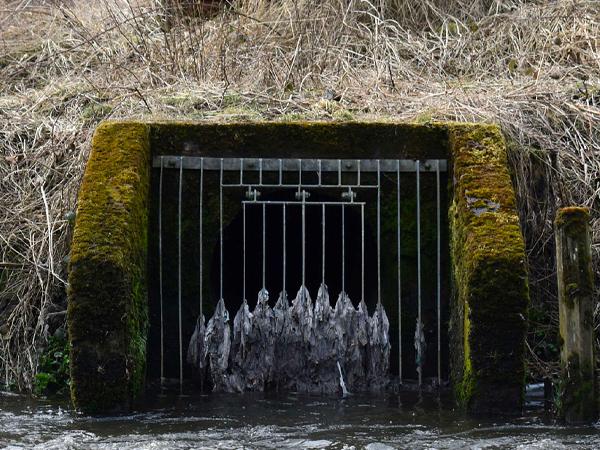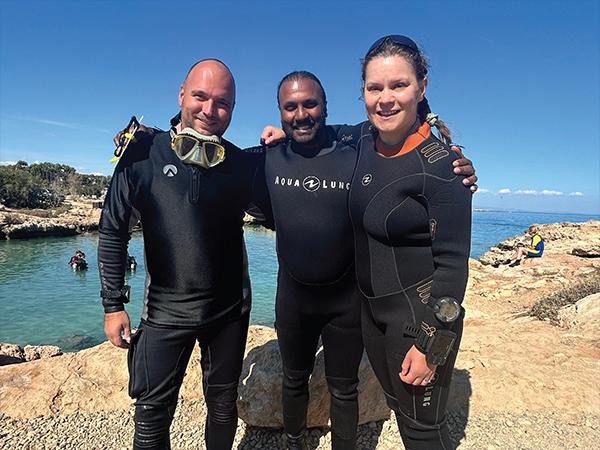BSAC's Annual General Meeting (AGM) will be hosted online on Saturday 22 May at 10:00 this year. We hope to see you there!
There will be a brief Q&A session during the webinar, and we’ve also added the opportunity to ask questions in advance. If you have any questions for BSAC Council ahead of the AGM, please use the form at the bottom of the page. Questions and answers will be posted below.
Navigation
- Membership, fees and strategy
- Club support
- Overseas club and centres support
- Diving and instructor training
- UK diving
- Environment and conservation
Membership, fees and strategy
I enjoy reading the SCUBA magazine and was disappointed when this turned into a digital format because I find it tedious and essentially unreadable. I read with interest the statements from the new council representatives, and almost all of them mentioned the decline in membership, I read SCUBA magazine on the train to work, and have many conversations with people about scuba adventures with the hope that some may join BSAC. My question is, will this return to a monthly publication in a hard copy format, or will the digital format continue? If the view is that it a digital format going forward, I would prefer not to receive it anymore.
Why do we pay the full price and not receive the printed scuba?
From the beginning of this year, we took the decision to return to a printed version of SCUBA and move to bi-monthly. I hope you are receiving this. In the meantime, we have made every effort to ensure that the iSCUBA version of SCUBA is more user friendly. We did this by changing to new software and we have received positive feedback that it is easier to read in this format. At the present time, we envisage remaining with the magazine being printed every other month for the next few months while the diving and travel market recovers and advertising increases in the magazine.
Like many clubs, charities and organisations, why didn’t BSAC reduce membership fees during Covid restrictions?
Due to no diving for the past 12 months due to Covid why do we need to pay our fees for last year? Like other organisations, can we have a 12-month credit for our membership?
BSAC already provide members with value for money through our existing range of high quality training materials, insurance cover and other products and services, despite being a not-for profit organisation
Where possible, we have made every effort not to mothball any services, and instead adapted to the unfolding pandemic by diverting resource to work more efficiently, create more online content and develop eLearning opportunities to support ongoing engagement of members. Further work is being undertaken to continue to strengthen these areas and maintain value for money for members despite membership numbers continuing to fall.
Divers with diabetes currently face a convoluted sign off process involving a GP medical, followed by a referee medical, followed by a sign off from Chris Edge. I cannot see why, with current HbA1C testing giving a good picture of management over a prior three month period why a GP medical (often expensive and carried out by a Dr with absolutely no diving interest or knowledge) is required. Nor the final signoff, which seems to exist (as far as I can see) in order to drive data into a survey which has been ongoing for many years. This process is serving to drive divers away from the sport in my opinion, indeed I am aware of more than one diver with 20+ years under their weight belt and contributing as Instructors simply walking away. This in a time when BSAC can ill afford to lose members.
In addition, the current system makes no distinction between Type 1 and Type 2, insulin dependant or not, and treats two very different diseases as one, imposing restrictions on Type 2 sufferers that seem more applicable to Type 1.
Whilst I am aware that the process is not determined by BSAC, would Council agree that there is merit in lobbying for change?
BSAC relies on the UKDMC for specialist advice on medical matters and Medical Referees are not only doctors with specialist training in diving medicine but also have to be qualified and experienced divers of at least Dive Leader or equivalent level. The UKDMC processes aim to allow those with a medical condition to dive safely wherever possible.
Prior to the research conducted by Dr Edge many years ago, diabetics were universally excluded from diving. Outside of the UKDMC system, more restrictive allowances for anyone with diabetes persist. The system is based on many years of research, principally by Dr Edge, and has led to significant improvements of understanding of the relative risks for all types of diabetes. HbA1C is one of a number of measures used to monitor an individual’s control of their condition. Dr Edge and other members of the UKDMC provide a detailed explanation of the condition and associated risks for diving safety in SCUBA magazine in recent years and the article can be found online.
BSAC continues to collaborate with the UK DMC on medical matters contributing to research, advice and communicating concerns such as this.
What do BSAC plan to implement in a more inclusive and invested interest for women members?
Having just voted for the candidates for election to Council, I noticed there were 6 candidates for 4 places. All candidates were men, and most were from the older age bracket. I've barely heard of two of them, and not heard of the rest. I would like to know: What is the BSAC Council doing to encourage more women (and more diverse candidates in general) to put their names forwards as candidates?
BSAC is actively looking at this with regards to equality, diversity and inclusivity. This year we requested people to apply who had the particular skill sets that we needed on the board. We are looking at how we can encourage more people to take up diving and roles in BSAC.
We have in the past worked on campaigns such as This Girl Can with Sport England and we did see a slight increase in the percentage of women taking part in diving.
Do you really think in this day and age that it is acceptable to present an all male line up for election to the committee?
Why are there so few women candidates for the roles voted for and is there are reason there is so little diversity in the club leadership?
All full BSAC members are invited to stand for election, and we were surprised to see that all of those who put themselves forward for election as Ordinary Council members this year are male, though there is a female candidate for Honorary Secretary.
This is in contrast to previous years, and the current council has five women and seven men. We are exploring how to encourage a more diverse membership in BSAC as a whole and would welcome any ideas on how we can make BSAC and Council attractive to a more diverse group.
When are we going to see any of many talented women BSAC members on the committee? We need a committee that represents the diverse membership that we have.
All full members are invited to stand for election, and the current Council has five women and seven men. We are exploring how to encourage a more diverse membership in BSAC as a whole. We would welcome any ideas on this please to maryt@bsac.com.
Why are there no women for election to the council? This looks so misogynistic? What is it about the Council that does not encourage the same numbers of women to apply? BSAC really needs to reflect on this and learn before the next election.
We are aware of this, and 2021 has been very unusual and disappointing in that respect, though we did have a woman stand in the election for Honorary Secretary. The outgoing Council was five women and seven men, and post AGM it will be four women and eight men. We will look at how we can encourage more diverse candidates next year, and of course, encourage more diversity in our membership as well.
As the BSAC forum was shut down some years back, how is Council actually communicating and engaging with the membership? And by communicating, I mean two-way conversations, listening to members and tackling issues, rather than anodyne commentary in the magazine.
We found that the consultation with members over the BSAC strategy worked really well and we were able to have some very valuable two-way conversations. We have continued to try to do this and just last week had a virtual meeting with uni clubs. We will be extending this to branches.
We are also currently looking at a community platform where we will be able to have internal areas for branch officers and members to discuss, meet and talk about diving and share ideas. This is about to go into consultation mode with stakeholder groups. We are really aware that members want two-way conversations and our aim is to be able to offer this facility.
Should the BSAC be seeking to improve its online presence with the reinstatement of the forum and the championing of BSAC Direct as an alternative to club membership?
Use of a variety of digital platforms integrated with the many other ways to connect the BSAC community is an ongoing task for us, to find what works best for our members and the wider diving community and continually improve the means by which we can communicate information on specific activities and projects that are diving related. To this end new approaches to marry the benefits of Direct membership with the traditional branch and centre models and their respective communication platforms are being explored as part of the latest strategic directives. If you would like to discuss this further please feel free to contact Mary Tetley at maryt@bsac.com.
With dwindling membership, where do the council see the income coming from to carry out the progression of BSAC?
The strategy for BSAC over the next few years is to attract new members into BSAC from other areas which we have not perhaps reached in the past. Along with this, we will look at producing courses which our members do want to be involved in, publications and eventually events. We will also look at how we can build the commercial side of learning to dive through BSAC centres.
What are BSAC's plans to keep the 25-35 age range interested in diving and not being limited to training due to being an overseas club and not having the luxury of being able to travel to get training due to be in full time jobs and only able to dive on weekends?
The BSAC Community project aims to provide a wider emphasis on the diving community beyond training and promote greater diving opportunities including involvement in projects. The issues of limited time and increasing personal demands are ones that face all BSAC clubs and flexibility and variety in opportunities is key for all.
It is entirely right and proper that election candidates are highlighting the need to engage the next generation of potential divers. But a quick glance around many dive sites and charter vessels will reveal that they are heavily populated with divers of middle age and above. In the effort to appeal to younger divers, let's not ignore the need to retain or attract the older ones. Please don't dismiss the grey pound!
We agree! We absolutely understand that to be fit for the future as an organisation, we need to retain our current members as well as recruit new members of all ages.
Many members like myself have reached a level of diving qualification and skills that suits the diving we like to do, ie. the odd dive on a holiday or a diving holiday once a year. In both examples the dive operator hopefully would require check out and warm up dives. Maybe a different level of membership for this group of diver would help retain membership, all be it at a reduced income stream, but something is better than nothing? Like myself - I have been unable to dive for many reasons for the last few years (not medical related) so paying for full membership while not even diving can push many members away from the club.
We are keen to explore new membership options but this is a tricky one for us, as it is difficult to see how this would be anything other than full membership with SCUBA magazine and insurance benefits.
The issue with BSAC is that it is losing membership. One of the factors which I think is causing this loss of membership is the membership fee. I think that BSAC should do away with the membership fee for the entry-level courses, Ocean Diver and Sports Diver and apply the membership fee to people who wish to pursue higher-level courses similar to PADI. PADI membership fee applies only to Divemaster upwards. As an overseas club, we cannot compete as the membership fee including postage to ship the material out is a major cost that shuns people away from doing courses with the Club. Why hasn't BSAC ever considered to do away with membership fees?
Unlike many other diver training agencies, BSAC is a members organisation and much of our training is delivered by volunteers rather than paid professionals. Charging our volunteer instructors a membership fee, but not their students wouldn’t be appropriate.
We hope that you are making use of the digital training materials, and thus avoiding the postage fees.
The British Sub Aqua Club is a members organisation, and as such is responsible to all of its members. Yet there appears to be a level of secrecy surrounding its actions and the scrutiny by members. This is perfectly demonstrated in the publishing of minutes labelled "public synopsis" which actually sit behind a members login and are not "public" minutes at all, but members minutes. The minutes made available to BSAC members are not the minutes used by the board and agreed as a true record, but a sanitised and reduced version that is not the full record. Given that organisations like Sport England publish full minutes that accurately record its activities in an open and transparent manner. Would the board not agree that members should be able to scrutinise its Club and board activities in full, through the publishing of the same minutes that its elected board see?
We have discussed this over the years, and taken advice from other National Governing Bodies on this.
As you might expect, our meetings do include a number of matters that are commercially sensitive, hence we publish a synopsis that is a meaningful summary, rather than the full minutes.
We are planning to review key aspects of our governance, in line with guidance from Sport and Recreational Alliance, and can include this question as part of that review.
Will the app be developed to include abilities to do eLearning and refreshing previous theory qualifications? For example, like language learning apps such as Duolingo help learn new languages and keep old knowledge refreshed.
The app will be linked to the BSAC website and all the functionality which is on bsac.com will be available via the app, but something like Duolingo is a bit ambitious for us at this stage.
In light of the pandemic we are in and hope that world travel will slowly be available, is there any chance of a more comprehensive travel insurance incorporating Covid cover could be made available to BSAC divers?
The travel insurance market is currently very difficult, and no insurers that we are currently aware of are including Covid cover. We have tried in the past to provide travel insurance and not been particularly successful.
Could you clarify who runs BSAC for the membership? Is this BSAC Council or BSAC HQ employees? In my mind, it should be the council, but individual HQ employees have been making significant decisions beyond their remit, and have been a ball and chain around the organisation development, could this balance of power be readdressed?
Council is the board of directors of BSAC and is responsible for setting policy and strategy. Implementation of that policy and strategy, along with operational management of BSAC, is the responsibility of the staff at BSAC HQ.
Club support
Arising from the lack of being able to dive, many people particularly those undertaking Ocean Diver have not had the opportunity to practice skills alongside the theory lesson. How does BSAC intend to support branches in ensuring that they are able to give divers the skills and confidence to get into the water? Is this long period of being unable to dive going to affect the skill level of qualified divers?
Skills refreshing is an essential part of BSAC guidance on a return to diving following any break and forms part of the Preparation for a Return to Diving.
Could the council set up a regular phone call to all Diving Officers or Chairs of each branch as a quick catch up on anything BSAC can do to help? And get feedback from the branch members? Maybe 3 or 4 times per annum?
Yes definitely. After the success of virtual consultation meetings with various sections of our membership, we realised how easy and effective this is to do and we have agreed to roll this out. We have already had teams meetings with centres, universities, coaches, NDC and Council. We will look at how we can extend this to Branch Officers now and look at running some Diving Officer workshops.
My club has a number of members qualified to plan and go diving. Why do we need a Club Diving Officer to police us?
As a club, no one wants that extra responsibility and currently, we don't have a diving officer so we can't go diving. This is not a requirement under any other training agency so it is much easier for me to leave BSAC, join another diver training agency's club and just go diving.
Why is BSAC making it so difficult for its members to go diving?
BSAC is a members organisation and BSAC clubs provide an infrastructure to support members to go diving. Within any structure, there will be a range of qualifications and abilities of divers and within a club, a Diving Officer has the role of overseeing diving and diving safety.
It is not a matter of policing but of advising and supporting members on how to go diving within the limits of their training, experience and capabilities. In the absence of a Diving Officer, such responsibility would fall on the club committee as a whole. Wherever you go diving those same responsibilities exist whether in a formal structure such as with a dive guide on holiday or in another club or where two buddies go diving together (either jointly or by the more experienced/qualified).
BSAC has been working hard on a number of issues during difficult times. However, as a branch officer I find it frustrating to find out about what's being worked on until it either appears out of the ether or appears in SCUBA magazine before the branches are informed. Most of these initiatives do have an impact on the branches, and, with each successive Council, we keep hearing that branches are the lifeblood of BSAC, but the impression is that we are the last consideration rather than the first. Will the new Council and HQ make sure that we at branch level do know what's being worked on and be given the opportunity to input into these initiatives?
Agree with this and we are aware that you have raised this with our CEO. We have spoken about ensuring that we email branches with any updates which impact them before we release them in Scuba and other communications. We aim to improve this.
If the pandemic has taught us one thing, it is the importance of online theory learning and the challenge of maintaining club membership levels during these unusual times.
What are the plans to continue with online theory learning? What support can you offer to branches in these times as we gradually come out of lockdown restrictions?
We agree that this has been one of the great successes of the pandemic, and our plan is to continue this. We will continue working on ensuring our training continues to go online. We will also continue with the successful webinars. We had just under 3,000 members engage in these. They will continue and we are currently preparing a programme now for start in September.
Does the BSAC have a strategy to support university branches post-pandemic?
Early on in the pandemic, BSAC established a working group to look at the way universities could be supported in both the short and the long term. As we look to the ‘new-normal’ BSAC recognises the significant and multi-faceted challenges university branches face as well as their importance in the sport.
There is significant work ongoing with both a team from HQ combined with volunteers and a team from the National Diving Committee investigating ways that BSAC can provide the ongoing support these clubs need. BSAC has already established improved communications, tailored support, university-specific support webinars and more.
Currently, we are looking at developing centre support for universities to help with diver training as well as improving the regional support that is already in place. There is also work being undertaken by NDC to bolster the resources and guidance available to university clubs as well as other programmes such as the Sport England instructor development scheme, which will support university clubs in developing more experienced divers.
Looking forward, BSAC aims to help branches deal with some of the significant issues they face and there are a large number of individuals in Council, NDC and HQ who are considering the ways this could be delivered using experience, new techniques and analysis of feedback delivered in support webinars and workshops. With a new position on NDC of Universities Advisor and with Council and HQ input, BSAC is making sure that these clubs are at the forefront of thinking and considered at every point of the strategic plan to 2023 and beyond.
Overseas club and centre support
How is BSAC planning on helping and branching out to the overseas club?
The strategic plan encompasses all aspects of BSAC and aims to develop resources that will support all sections of BSAC including overseas clubs.
We are currently looking at running some webinars and Q & A discussion sessions with our overseas clubs and centres and will be in contact.
Does BSAC even care about the overseas clubs?
BSAC cares about all sections of our operations including clubs (overseas, UK, diving, snorkelling, universities etc.), Centres (diver training, seamanship, snorkelling) and individual members at all levels and experience. If there are specific issues that you’d like us to consider, please contact drt@bsac.com.
We have tried to help with the cost and delays when posting training packs overseas and all DTP and most SDCs are now available in digital format.
Will OWI courses ever be a possibility to be taught to an overseas club?
BSAC instructor training can be facilitated for any overseas clubs where demand makes the visits viable for students and visiting instructors (events have been held in recent years in Australia, Bermuda, Cyprus, Gibraltar, Malta, Mauritius and Lanzarote). If you believe there is demand in your country or region, please let us know. We would like to know how many candidates overseas clubs and centres have for our courses. We can then look at how we combine around a geographical hub and try to agree to run some courses in certain regions. Obviously, the timing is not right currently but if we can start looking at coordinating demand this can be something to look at.
How can you help clubs overseas whereby we can't get a BSAC National Instructor to visit yet we need to advance some of our signs off ex cox assessor so that clubs like ours can continue to develop, please?
We know that access to more advanced or specialist training is an issue for overseas members. We will be in contact as travel restrictions ease to assess the demand in each region and to work out a viable plan.
I live in Finland, a country that does not have BSAC representation that I know of. I understand that it is difficult to have a branch in every single country, but this makes my membership a poor value for money choice. Although I have been loyal to the club for a while, even though I haven't been diving for a while due to family commitments, now it is coming to a point where it makes little sense to continue my membership.
One thing that it would make it attractive not to cancel the membership would be an annual fee reduction to, let's say, half of it. Would the club consider this option for overseas members in similar situation to mine? We already are missing in the UK diving insurance and paper magazines are not longer an option, plus we can't do courses as it will mean flying and staying in the UK for a while, which might not be convenient to many. This is opposed to PADI, which is present in Finland, for example, and would make more sense to join. Thank you.
We are sorry that your BSAC membership isn’t working well for you at the moment. The challenge for us in offering a discount for members who are currently inactive or unable to access training is where we would draw the line. We are exploring how we can better support our overseas members, but we don’t have a simple fix.
What's in the plan for overseas clubs?
The strategic plan encompasses all aspects of BSAC and aims to develop resources that will support all sections of BSAC including overseas clubs. The aim is to develop models that can be adopted and adapted by any club to fit their particular circumstances.
Are you going to develop the overseas market any further?
As a BSAC instructor and member who runs a dive centre overseas, I can see a huge gap in the market that is not really promoted very well. Everyone points to dwindling membership and recruiting younger members. Daily, I have people handing over money to PADI et al., but nothing to BSAC. We have the visibility, warmth and wrecks that all our members love diving on. This is something that could be developed much further I feel.
I also hasten to add that this is not related to my wanting to generate more business for myself, this is my wanting to help an organization I love and the hobby that is my career. Thank you.
We are keen to expand our presence in the overseas market, and our recent agreement to establish a stronger presence in Egypt is a good step in that direction. It is clear that we need to further develop some of our offerings to be more competitive in the commercial sector. If you have any specific suggestions, please email adrianc@bsac.com. BSAC has now lowered the age to 10 for discovery diver only for centres and this should help when promoting learning to dive with BSAC. We also understand for centres that Sport Diver takes too long for anybody on holiday to learn. We are therefore working on a new module which should bridge the gap between Ocean Diver and Sports Diver. Watch this space.
As a member of a BSAC club outside the UK, has BSAC got any plans to enhance collaboration and diving instruction (online) for clubs abroad?
The strategic plan encompasses all aspects of BSAC and aims to develop resources that will support all sections of BSAC including overseas clubs.
BSAC instructor training can be facilitated for any overseas clubs where demand makes the visits viable for students and visiting instructors (events have been held in recent years in Australia, Bermuda, Cyprus, Gibraltar, Malta, Mauritius and Lanzarote), although the current pandemic has placed some limitations on this.
I would like to ask what is BSAC's strategy regarding the overseas clubs, mainly those located in non-British territories like Netherlands, Germany and Switzerland. In the latest years, these clubs have struggled to qualify new instructors which is compromising the survival of those clubs. There is also a general concern regarding the Brexit effects, mainly about the legitimacy and liability of running BSAC courses in EU territory.
BSAC continues to support our branches and members outside of the UK, including within Northern Europe. Prior to the constraints of the Covid-19 pandemic, we made every effort to support instructor events in Northern Europe and, wherever possible, ran events even when student numbers were low but relatively viable.
BSAC members' liability insurance cover is valid worldwide (with a small number of exceptions such as USA AND Canada and UK sanctioned countries; Iran, Syria, Crimea, Ukraine, Russia.). See our liability insurance validity following Brexit document for written confirmation.
In reading candidates statements their focus is very much UK based - there are a large number of overseas branches with members who pay the same membership fees as the UK members. Following training overseas clubs struggle to retain members who consider the UK fees do not provide them with the benefits offered. What is the committee planning to do to retain overseas members?
There is no requirement for Council members to be resident in the UK, and we would welcome candidates from overseas to provide a more diverse perspective.
As part of the strategy consultation, we held sessions with both overseas branches and overseas centres to gain a better understanding of their needs, and are following up with further online meetings to help develop our thinking.
One key issue that was identified was the postage costs and delays with printed packs, and so we have now made almost all of our training materials available in digital format. Likewise with iSCUBA.
A remaining key challenge is how we can better support the need for instructor training or more advanced training overseas, and we will be in contact as travel becomes more viable to understand demand.
Overseas members – what do we get?
Insurance is the most tangible benefit included in overseas membership. The cost of insurance premiums in some countries would be prohibitive for a single policy and these policies also include a very limited level of cover, in some cases as low as 15,000 euros.
The BSAC membership includes the same level of cover for all members, irrespective of the country they live in, which is currently £10 million.
Diving and instructor training
How are the BSAC council going to address the lack of continuous/through-life Quality Assurance/Quality Control amongst their instructors. Has any thought been given to establishing a QA/QC system similar to that other agencies (e.g. PADI, TDI, etc) ensuring the currency and competency of BSAC instructors?
BSAC training has to be conducted within a club under the authority of a branch Diving Officer (DO), who derive their authority from the NDO. DOs and their training teams are the most effective quality assurance method for continual monitoring and can provide tailor-made updating for their instructor teams.
BSAC, however, continues to develop and maintain our QA systems and to support DOs and their teams.
Will other agencies instructors who are higher than Open Water Instructor ever be allowed to crossover to Advanced Instructor. For example, SAA Regional Instructor (CMAS 3*** Instructor)?
The NDC Instructor Training Group continually review our training programmes including the Instructor Crossover Programme.
The OWI crossover identifies gaps that can be covered by the existing crossover process, which includes attendance on an OWIC.
Previous reviews of higher instructor qualifications have identified limited parity between more advanced training for higher grades due to different focus of different agencies training that would allow a similar shortened route to match across higher instructor grades at this time.
However, as noted above this will remain under regular review.
Why has BSAC lagged behind other training agencies (e.g. PADI) in terms of training programmes and also when is instructor training going to ensure that instructors are taught consistent and quality demonstrations for each skill?
BSAC has consistently reviewed and developed our training programmes to ensure they are appropriate for the changing needs of divers and to take account of new evidence. Examples include the integration of essential skills within core training rather than continued separate provision (including nitrox within Ocean/Sports Diver, drysuit training, PRM & O2 etc.), and the inclusion of Immersion Pulmonary Oedema (IPO) into training.
BSAC instructor training is focused on effective training using STEP and PAVE rather than rigid adherence to single methods that may not be effective for all students.
Due to the ongoing Covid pandemic, even when we do return to the pools, some people may find some of our training skills a tad difficult to do due to fear such as rescue breathing (mouth to nose and to mouth).
Can BSAC possibly take a leaf out of other diving organisations and make the use of the pocket mask for this skill? It will ensure there is a better barrier and can also provide both users better comfort and piece of mind. As an instructor with other organisations as well as BSAC, I can see a clear benefit for us all. Thank you.
The NDC Safety Group continually review our guidance in relation to European Resuscitation Council and other first-aid agency recommendations as well as all other relevant resources. In relation to the use of a pocket mask as a barrier to infection, to be effective, they need to have a filter fitted to act as a barrier. However, such filters are only effective if they are kept dry.
What will be the situation of those divers who have done all their training and all but one or two of the cells in the old Advanced Diver training? Having to do the whole of the new is not attractive, especially when loads of experience has been accumulated but now less dive time is available due to work and life loads as one progresses.
Whenever there is a substantial change in the Diver Training Programme there is always a significant period of time allowed for students already partway through their training to complete the existing programme.
The last significant change to the AD syllabus was in 2002 and at that point, much of the previous AD SDC based syllabus was redistributed throughout Dive Leader and Sports Diver. Any relevant past experience would still count for the current syllabus.
Will BSAC look into holding training and events that don’t fall on a Saturday? Due to my religious beliefs I am unable to attend training or the AGM as it often falls on a Saturday. When asked directly I was told the best route would be to look at direct private training which feels like it goes against a club/group atmosphere.
Our Branch, Regional and Instructor Training events are delivered by volunteers, many of whom have jobs that take up their time midweek. However, many branches do have an active group of shift-workers and retirees who dive and instruct midweek and are generally happy for members of other branches to join them.
We also try to run a small number of instructor events on weekdays (e.g., Open Water Instructor courses scheduled at Stoney Cove and Capernwray). Can I suggest that you contact your Regional Coach and discuss your training requirements with them? If there is demand, they may be able to schedule an event or introduce you to instructors whose availability matches your own.
There appears to be no quality assurance process in place for SDCs, the packs are riddled with errors and out of date. Is BSAC ever going to seriously address this issue?
We apologise for the standard of the packs. We are aware that they contain errors and we have started work on improving and updating them.
Is there going to be more skill-based training in the Wales area at all?
Each year the Welsh regional program of events is generated based on feedback from Welsh members and branches. We aim for the regional events to complement branch training. In Wales, the majority of BSAC training occurs within the Welsh branches. We recognise it’s not always possible for our members to complete all their desired training within their respective branch. At which point, where known, we try to support these aspirations with regional team input.
As Welsh Regional Coach, I always welcome feedback to help develop our regional events and other team support. I welcome contact from members. I can be contacted by emailing wales.coach@bsac.com.
UK diving
What the future looks like in terms of diving in the UK? Anything BSAC is planning to do in terms of further development and training and keep members engaged?
We think the future of UK diving looks bright as we come out of lockdown and post COVID. We have plans to encourage our branches to support diving with a purpose. Of course, many of you do this already but members have told us that you are keen to help with the environment. We are looking at how to connect our clubs more and encourage you to join up with projects that may be running in certain areas, such as seasearch and help with gathering information. Encouraging expedition diving will be something we will look at and of course support for charter boats where possible.
From a training point of view, we will be looking at new courses and will let you know when they will be coming out.
We are also encouraging branches to partner with centres in their area to help train their divers/members when they need help, so we can ensure that new members learn to dive without undue delays.
Everyone is restricted by the Coronavirus pandemic and also by the No-holidays abroad policy of UK HM Gov. This is a golden opportunity for BSAC to launch an advertising campaign to encourage people to lean to dive at home in the UK and this, in turn, would regain the lost membership numbers. Will BSAC urgently look at ways that could provide economic advertising to this end?
We have been looking at this. This has started already via youtube and social media. We have been discussing how we can reach a wider audience including non-members. Some of this is being done via collaboration with other organisations as well. If you have any ideas or wish to discuss further please email maryt@bsac.com.
Environment and conservation
Could we please use our unique structure and expertise to engage much more widely, and publicly, in conservation initiatives?
Our new strategy confirms that we will be doing this. We have already started to work with some organisations and will continue to offer great diving with conservation projects involved. We have recently launched Operation Oyster and also working closely with Surfers against Sewage (SAS), Marine Conservation Society (MCS), and other conservation organisations – updates will follow in SCUBA over the next few months.
Last updated: 21 May 2021
This document will be updated every few days with any new questions received.

